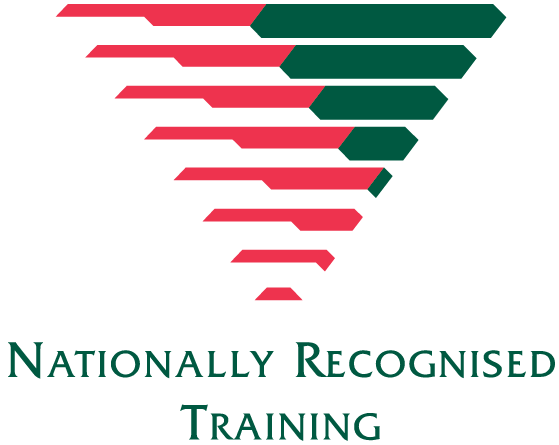Who is the course suitable for?
The CHC43121 Certificate IV in Disability Support is ideal for individuals interested in pursuing a career in supporting people with disabilities. It prepares learners to work in a variety of settings, such as residential care, day programs, and community support services. This qualification equips students with the skills and knowledge to provide person-centred care, assist with daily living activities, promote community participation, and support individuals to live more independently.
This course is suitable for those who are compassionate, empathetic, and motivated to make a positive impact in the lives of individuals with disabilities. It is also ideal for people who already work in the disability sector and are looking to formalise their skills or take on more advanced roles.
Course Duration
- 12 Months
All students are to engage in at least 10 hours of supported self-paced learning each week during the course. Supported self-paced learning is to be undertaken by the students outside of the scheduled hours according to the student’s individual learning needs. However, to support the students AGAE will provide a self-study guide that links to self-paced learning activities to these scheduled timetables.
Mode of delivery
- Face to face and / or Live Zoom Sessions
Training Location
- Victoria: GO2/1510 Pascoe Vale Road, Coolaroo Vic 3048
- South Australia: 225 South Rd, Mile End SA 5031
- Skills Centre Port Augusta: 4 Marryatt Street, Port Augusta 5700
Work Placement
To achieve this qualification, the candidate must have completed at least 120 hours of work as detailed in the Assessment Requirements of units of competency.
Course Structure
To be awarded the nationally accredited certificate the CHC43121 Certificate IV in Disability Support, a student must successfully complete a total of 10 units comprising of 7 core units and 3 elective units.
| Unit Code | Unit Name | Core / Elective |
|---|---|---|
| CHCCCS044 | Follow established person-centred behaviour supports | Core |
| CHCDIS017 | Facilitate community participation and social inclusion | Core |
| CHCDIS018 | Facilitate ongoing skills development using a person-centred approach | Core |
| CHCDIS019 | Provide person-centred services to people with disability with complex needs | Core |
| CHCLEG003 | Manage legal and ethical compliance | Core |
| CHCMHS001 | Work with people with mental health issues | Core |
| HLTWHS003 | Maintain work health and safety | Core |
| CHCADV002 | Provide advocacy and representation services | Elective |
| CHCCCS019 | Recognise and respond to crisis situations | Elective |
| CHCCCS033 | Identify and report abuse | Elective |
What resources are used to deliver the training?
Student Handbook
A comprehensive Student Handbook will be provided to each student. This document outlines the course structure, objectives, key concepts, and guidelines, serving as a reference throughout the program. It also includes essential information on safety protocols and best practices. The handbook contains:
- Key learning points and summaries for each unit
- Theoretical readings and additional resources to deepen understanding
This resource ensures students are well-equipped to navigate the course and apply their knowledge effectively.
Textbook
The Textbook for students studying the Certificate IV in Disability Support provides essential information to help them navigate through the course content, practical tasks, and assessments. It serves as a comprehensive resource that supports students’ learning and ensures they understand the key concepts, skills, and requirements they need to succeed in the field of supporting teachers and students within a school environment.
By following the guide, students can ensure that they meet all course requirements and are fully prepared to enter the workforce as qualified teaching assistants, classroom aides, or education support workers.
Presentation Slides
Presentation slides are used by the trainer during the course delivery to visually support key concepts and discussions. These slides summarize the main points from the Textbook, helping students follow along and engage with the material. They may include:
- Diagrams and charts
- Example scenarios and case studies for group discussion
Practical Equipment & Tools
During practical sessions, students will typically use a variety of practical equipment and tools to support their learning, develop their skills, and gain hands-on experience relevant to the field. Some of the common equipment and tools they may use during their studies include:
- Personal Care Equipment:
- Shower and Shower Chairs/Bath Benches: For assisting individuals with mobility issues during bathing.
- Toilet Aids (e.g., raised toilet seats, commodes): To support individuals with mobility difficulties when using the toilet.
- Transfer Aids (e.g., transfer boards, sliding sheets, hoists): To assist individuals in safely transferring between surfaces such as from a bed to a chair.
- Bed Rails and Repositioning Aids: To help clients with safe positioning in bed and preventing falls.
- Personal Hygiene Aids (e.g., adapted toothbrushes, bathing sponges, nappy): To assist with maintaining personal hygiene.
- Assistive Technology and Mobility Aids:
- Wheelchairs (Manual and Powered): To assist individuals with mobility impairments.
- Walking Aids (Canes, Crutches, Walkers): For supporting individuals who can walk but need stability.
- Mobility Scooters: For individuals who need assistance moving longer distances.
- Communication Devices: For individuals with speech impairments or limited communication skills.
- Daily Living Aids:
- Adaptive Kitchen Tools (e.g., easy-grip utensils)
- Modified Furniture (e.g., adjustable bed and wheelchair): For people with mobility challenges, these items allow for easier access and comfort.
- Non-slip Mats or Surfaces: To reduce the risk of slips and falls in bathrooms, kitchens, and other areas.
- Safety and Emergency Equipment:
- First Aid Kits: Necessary for handling medical emergencies and injuries.
- Fall Detection Devices: Wearable tech to detect falls, alerting caregivers or medical staff.
- Environmental Modifications and Aids:
- Ramps and Doorway Wideners: To make spaces more accessible for wheelchair users.
- Handrails and Grab Bars: For added stability in bathrooms, hallways, and stairways.
- Adjustable Height Furniture: Beds, chairs, and tables that can be adjusted to suit the individual’s needs.
- Lighting Adjustments (e.g., motion-sensor lighting or specialized lamps for low-vision individuals): To assist with vision impairments or mobility issues.
- Training and Simulation Tools:
- Role-Playing Kits: To simulate real-life disability support situations, allowing students to practice responses to various challenges.
- Case Studies and Scenarios: For helping students work through complex support scenarios and develop problem-solving skills.
- Learning Modules or Simulators: Digital tools that help students practice skills like administering medications, understanding care plans, and responding to emergencies.
- Transport Assistance:
- Vehicle Modifications (e.g., wheelchair lifts): To support individuals with mobility impairments in traveling.
- Harnesses and Seatbelts: For ensuring that individuals are securely seated during transport.
- Personal Protective Equipment (PPE):
- Gloves, Masks, and Aprons: Essential for infection control, especially in healthcare settings.
- Hand Sanitizers and Disinfectants: To maintain hygiene when working with clients.
These practical equipment and tools used in the CHC43121 Certificate IV in Disability Support provide essential support for individuals with disabilities to live more independently and safely. Training with these tools ensures that workers are well-prepared to meet the physical, emotional, and social needs of the individuals they support.
Risk Assessment Templates
Students will be provided with templates to conduct risk assessments. These templates guide students in systematically evaluating hazards, assessing risks, and developing control measures for a variety of work-related situations. They are an essential resource for both individual and group activities, ensuring a structured approach to safety and risk management.
Assessment Tools
Assessment tools will include:
- Knowledge questionnaires: Designed to test student’s understanding of theoretical concepts such as legislation, person-centered care, ethics, and policies in disability support.
- Case Studies: Designed to assess student’s ability to apply theoretical knowledge to real-life scenarios. They help learners demonstrate their problem-solving, decision-making, and critical thinking skills.
- Observation Checklists: Trainers observe students in simulated or real-life work environments (such as role-playing scenarios or placements) and evaluate their ability to perform practical tasks like assisting with mobility, personal care, communication, and implementing support plans.
- Competency-Based Assessments: These assessments focus on specific practical skills. Students may be required to demonstrate tasks such as using assistive devices (e.g., wheelchairs, hoists), implementing behavior management strategies, or performing health monitoring tasks.
- Demonstrations: Students may need to demonstrate their ability to complete particular tasks under supervision. For example, demonstrating how to safely transfer a person from a bed to a wheelchair, using a hoist, or assisting with feeding.
- Role-Play Scenarios: These are designed to simulate common workplace situations where students interact with clients, other workers, or family members. Role-plays test communication, problem-solving, and interpersonal skills.
Assessment Arrangements
- Assessments are designed to allow the students to exhibit competencies in the unit(s) of competency.
- Assessment’s methods can include practical tasks, project, written responses, role play, supervisors report, case studies, etc.
- Information about assessment requirements will give out in the first class and explained clearly by the trainer/assessor.
- Students are not graded but deemed “Competent” or “Not Yet Competent”.
- Students can appeal an assessment outcome.
Student Support
AGAE offers a range of support services to meet everyone’s needs. Please contact AGAE directly for assistance with your requirements.
What can I do once I have completed my qualification?
Upon successful completion of this qualification, CHC43121 Certificate IV in Disability Support, students will be equipped with essential skills to provide support to individuals with disabilities, enabling them to lead more independent and fulfilling lives. Graduates will be trained to assist clients with daily activities, personal care, and communication, while promoting their dignity, rights, and autonomy. This qualification also prepares students to work in a variety of settings, including group homes, community programs, and supported employment services with ability to:
- Provide person-centered care and support
- Assist individuals in developing their skills and independence
- Respond effectively to challenging behaviors and crisis situations
- Promote inclusion and accessibility for people with disabilities
- Ensure compliance with legal and ethical requirements in the disability support field
Career Pathways
By completing the qualification, CHC43121 Certificate IV in Disability Support, students will be well-prepared to take on roles that enable them to work across various settings, such as residential care, community organizations, and healthcare facilities, to support people with disabilities in leading fulfilling and independent lives:
- Disability Support Worker: Providing direct assistance to individuals with disabilities in their daily activities, including personal care, mobility, and community participation.
- Community Support Worker: Helping individuals with disabilities to engage in community activities and access services, ensuring social inclusion and independence.
- Personal Care Assistant: Assisting clients with personal care tasks, such as bathing, dressing, and grooming, while ensuring their dignity and comfort.
- Accommodation Support Worker: Supporting individuals in group homes or other living arrangements, assisting with household tasks, and promoting a safe, comfortable living environment.
- In-Home Support Worker: Providing care and support for individuals in their own homes, helping them to live independently and participate in family or community life.
- Employment Support Worker: Assisting individuals with disabilities to access supported employment opportunities and develop skills for workplace participation.
Education Pathways
Depending on your long-term career and study goals, upon completion of CHC43121 Certificate IV in Disability Support you may wish to progress completing:
- CHC52021 Diploma of Community Services
- CHC53315 Diploma of Mental Health
- CHC50221 Diploma of School Age Education and Care
- BSB50420 Diploma of Leadership and Management
AGAE does NOT guarantee any:
- Licensing outcome
- Employment outcome
- Successful completion of this course
Are there any prerequisites or entry requirements?
To enrol in this qualification, the student needs to complete:
- CHC33021 Certificate III in Individual Support (Disability)
- OR
- CHC33015 Certificate III in Individual Support (Disability)
- OR
- Completion of: CHC30408 Certificate III in Disability PLUS the CHCSS00125 Entry to Certificate IV in Disability Support Skill Set.
The RTO has the following admission requirements:
- Students must be 18 years of age.
- Students must undertake Language, Literacy and Numeracy test prior to enrolment. To gain entry into this course, student must have been determined as having the appropriate LLN capability.
- This program has been designed to be delivered through classroom-based delivery and students must have the ability to attend the scheduled sessions as per the timetable and must have access to a computer and the internet to complete self-study work. Students are to be informed of the timetable on enrolment and must maintain the required student contact hours.
- Students must be prepared to follow industry dress code standards for the work placement component of the course.
- This course has no entry requirements, however, prior to work placement, students will be required to obtain a Working with Children’s Check, National Police Check at their own cost.
- Applicants need to have the mental, emotional, and physical capability and willingness to work with children for extended hours on a daily basis.
- Applicants must identify any issues including mental, emotional, and physical issues of relevance to this occupation and training at the time of registration.
South Australia:
All candidates who are seeking to access to training are required to participate in the Upfront Assessment of Need process.
For more details about the UAN assessment visit https://providers.skills.sa.gov.au/Deliver/Upfront-Assessment-of-Need
- Individuals who are unwilling to participate fully in all aspects of the UAN process may instead choose to undertake training through fee for service arrangements.
- Suitability to ensure there is a good fit between the individual and the qualification of choice support requirements to ensure early identification and planning for individual learning, personal or complex needs.
- Literacy and numeracy to ensure wherever possible the individual can, if otherwise suitable, undertake a vocational qualification with additional foundation skills training OR to provide a clear evidence base of need for accessing a foundation skills qualification.
The requirement to provide a Unique Student identifier (USI)
All students are required to obtain a Unique Identifier (USI) prior to enrolment or provide evidence if exemption from obtaining a USI. A student can obtain a USI by visiting the following website to create a USI number:
If a student has already previously obtained a USI number but does not know it, they can go to the website to obtain their USI:
Student can also sign a USI consent form to allow AGAE to search or create a USI number on their behalf. AGAE will not issue an AQF qualification if the student fails to adhere to this requirement.
Skills Recognition
Under the Australian Qualification Framework (AQF), AGAE accepts and provides Credit and Recognition of Prior Learning (RPL) to learners for units of competency and/or modules (unless licensing or regulatory requirements prevent this) where these are evidenced by:
- AQF certification documentation issued by any other RTO or AQF authorised issuing organisation, or
- Authenticated VET transcripts issued by the Registrar
Obtaining your certificate or Statement of Attainment after successfully completing your course
- AGAE will issue a certificate within 30 calendar days of successful completion of the course, provided all requirements are met, fees are fully paid, and the USI (Unique Student Identifier) has been supplied.
- For students who partially complete the course successfully, a Statement of Attainment will be issued, provided all fees are fully paid and the USI has been supplied.
Fees:
South Australia Funded Student:
$330 ‘Participant Eligibility Criteria apply’ for to be eligible for South Australia Funded Student fees. *Supported by the Skills SA
You can check your eligibility at:
- Must be 18 years and above and not enrolled at school
- An Australian or New Zealand Citizen (Funded and Non-Funded Course) or
- A permanent Australian Resident or An eligible visa holder (Funded and Non-Funded Course) for more details on eligibility for funding courses visit:
https://providers.skills.sa.gov.au/Deliver/Student-eligibility-for-subsidised-training
Other States:
The cost for the full course for non-funded students is $2,900. This includes all tuition materials, administration fees, and training materials to complete the course. Students will be required to pay a deposit of $500 at the time of enrolment. Students/candidates can then either pay the balance in full upon commencement of the course or use the payment plan option available, which consists of five monthly instalments of $480.
AGAE does not take more than $1,500 as part of monthly instalment at any one time.
Cooling off period
Our refund policy is included in the agreement that you are required to sign to indicate acceptance of the offer of enrolment and all the terms and conditions specified. All self-funded course fees include a non-refundable deposit as outlined on the Course Outline and Student Agreement, which must be paid to secure a student’s place in the course.
The deposit is non-refundable except in the instance where AGAE is required to cancel a course due to insufficient numbers or for other unforeseen circumstances.
Students who withdraw from a course and wish to seek a refund or have the amount they owe on their fees reduced must apply to AGAE in writing, outlining the details and reason for their request.
Students who have not completed a withdrawal form are not eligible for consideration of a refund or reduction in fees. Eligibility for a refund will be assessed based on the services provided to the student and the costs incurred by AGAE in order to provide those services to the student. The outcome of the refund assessment will be provided by written notice to the student’s registered address outlining the decision and reasons for the decision along with any applicable refund or adjustment notice.
AGAE adheres to the cooling-off period as specified according to Australian Consumer Law. Further details can be accessed in the AGAE’s Student Handbook which is available on our website: https://www.agaeducation.com.au/
How To Enrol
To enrol in this course, please complete the Enrolment Form available on the website and email it to: admin@agaeducation.com.au
Or you can call us on:
- SA: (08) 7480 3318 / 0451 600 626
- All other states: (03) 8313 3249 / 0451 600 626
We will contact you to discuss your needs prior to finalising your enrolment.
Please ensure you read our Student Handbook along with this Course Outline.




